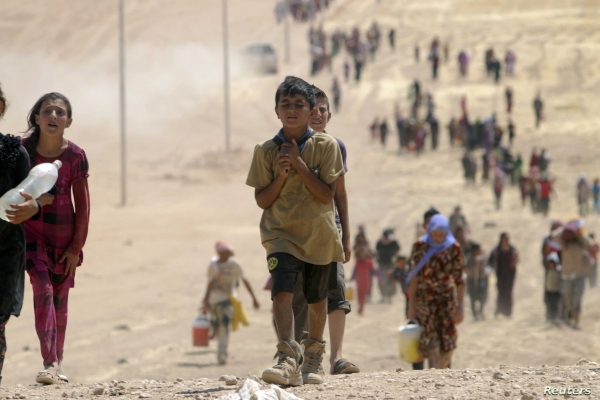The United Nations has revealed harrowing atrocities committed against children during the fight against the Islamic State in Iraq and the Levant. The third report of the Secretary-General on Children and armed conflict in Iraq was prepared pursuant to Security Council Resolution 1612 (2005) and covers the period between 1 July 2015 and 31 July 2019. The crimes committed include recruitment and use of children in the conflict, killing and maiming, rape and other forms of sexual violence, attacks on schools and hospitals, abduction, and denial of humanitarian access. According to reports verified by the United Nations(UN), 296 children were recruited and used in the conflict, with half of these being recruited by Islamic State in Iraq and the Levant (ISIL) while the rest were recruited by government aligned forces and the Iraq armed forces. These children were used in combat activities, carrying out suicide attacks, and executing perceived enemies of ISIL. According to the report, the recruitment of children formed part of ISIL’s political, military, and ideological aims. These recruitments were done through abductions, coercion, manipulation, and inducement and children from vulnerable groups were often targeted. Iraq armed forces and pro-government militias were also found to have recruited children.
Children were also subjected to severe and cruel punishment such as beheading, crucifixion, death by stoning, immolation, and other forms of execution, in addition to amputation, torture, and flogging. According to the report, a total of 1 722 were either killed or maimed during the conflict. The report also notes widespread failure by warring parties to adhere to international humanitarian law (IHL), particularly the principles of distinction, proportionality, and precaution, as well as failure to adhere to the principle which prohibits indiscriminate attacks. Schools and hospitals were subjected to attacks, resulting in the death of civilians, including children. Further, hospitals were also used as military facilities. According to the report, mortar rounds, sniper fire, landmines, car bombs, improvised devices, and explosives were used in densely populated areas. Children were subjected to rape, human trafficking for sexual exploitation as well as forced marriages by ISIL. The report notes that the situation in Iraq created a humanitarian crisis which included displacement of at least 1 million children. Efforts to provide humanitarian assistance were hampered by logistical and administrative challenges as well as violence directed at humanitarian organisations. Parties to the conflict also prevented civilians, including children from leaving the conflict area, thus depriving them of access to humanitarian aid.
The UN supported several efforts aimed at ending and preventing grave violations against children. These include the strengthening of the monitoring and reporting mechanism on children and armed conflict; promoting the establishment of an inter-ministerial committee on grave violations of the rights of the child; supporting the Iraq government in reviewing domestic legislation to identify gaps; and formulating recommendations with a view to harmonizing with the Convention on the Rights of the Child and other frameworks. Lastly, the UN undertook programmes to integrate children who were associated with ISIL as well as engaged with the Iraq government to promote non-judicial measures to integrate the children. According to the report, these efforts were hampered by active hostilities, lack of access, and the limited capacity of the interlocutors.
The report makes several recommendations to alleviate the suffering of children. It urges parties to the conflict to respect IHL by ending the killing and maiming of children, desisting from using schools and hospitals for military purposes, as well as stopping attacks and threats against protected personnel. The report further encourages the government of Iraq to implement the national child protection policy adopted in 2017, as well as to adopt legislation criminalising recruitment of child soldiers. The report calls for further engagements between the Iraqi government and the UN in relation to the development, adoption, and implementation of an action plan to end and prevent recruitment and use of children in the conflict and to ensure investigation of allegations of violations against children. The report also appeals to the Iraqi government to undertake protection, repatriation, rehabilitation, and reintegration of children in a manner that satisfies international law and standards. Lastly, the report calls donors to continue supporting the government financially to facilitate reintegration programmes for children.
To know more, please visit:
https://www.un.org/ga/search/view_doc.asp?symbol=S/2019/984&Lang=E&Area=UNDOC
Author: Lloyd Chigowe







